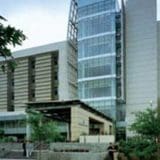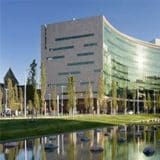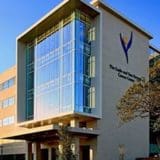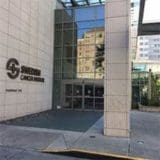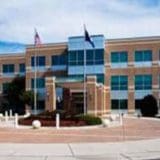01. What Are TTFields?
What Are TTFields for Mesothelioma?
Tumor Treating Fields (TTFields) are a new mesothelioma treatment. This therapy is administered by a portable electronic device called Optune Lua™. It passes gentle electric fields through the patient’s skin to slow cancer cell growth and help prolong patient survival.
Patients can take the device nearly anywhere and use it for the recommended 18 hours per day. This makes TTFields the only mesothelioma treatment patients can receive at home.
The U.S. Food and Drug Administration (FDA) has approved the Optune Lua:
- As a humanitarian use device
- For the treatment of inoperable pleural mesothelioma in combination with chemotherapy
A medical device company called Novocure® manufactures the Optune Lua. The company has several ongoing studies looking into the device’s use in other cancers. At last update, none of the listed studies included peritoneal mesothelioma patients. But Novocure is investigating TTFields in other abdominal cancers. If TTFields work well in those cancers, the company may look into its effects on peritoneal mesothelioma sometime in the future.
What Are the Benefits of TTFields Therapy for Mesothelioma?
TTFields offer several potential benefits for mesothelioma patients, including mild side effects and convenience. Additional TTFields benefits may include improved survival and quality of life, among others.
The advantages of TTFields treatment may vary because of individual factors. Mesothelioma patients can discuss TTFields with their oncologists to better understand potential benefits.
02. How Do They Work?
How TTFields Work To Treat Cancer
TTFields use low-intensity electricity to disrupt cancer cell growth (cell division). By interrupting this process, TTFields may break apart and destroy tumor cells. Over time, TTFields can interrupt many rounds of cancer cell growth. This may improve mesothelioma prognosis.
According to the device manufacturer, TTFields have not been shown to affect healthy cells.
Why Do Electric Fields Disrupt Cancer Cell Growth?
Cancer cells grow faster than most healthy cells. Cancer cells grow by copying the important parts of one tumor cell and dividing them evenly between two new cells.
These copying and dividing activities depend on proteins in cells. When uninterrupted, cancer cells can use these proteins to grow and divide correctly. But introducing TTFields can make the proteins move in random or unexpected ways. This motion makes it very difficult for cancer cells to correctly divide their copied parts into two new cells.
In fact, TTFields may affect these proteins so strongly that they pull the dividing cell into pieces and destroy it.
How Is TTFields Treatment Administered?
TTFields for mesothelioma are given alongside traditional chemotherapy. The chemo consists of pemetrexed and either cisplatin or carboplatin. Mesothelioma patients receiving this therapy may experience the following:
- Continuous TTFields applied to the chest
- Intravenous (IV) chemotherapy once every three weeks for up to six cycles
Patients may continue receiving TTFields until their cancer starts growing. They may also choose to stop therapy because of serious side effects or if a physician recommends it.
How Do Patients Use the TTFields Device?
The device is fairly simple to operate. The Optune Lua is designed for patients to use independently. However, oncologists and care teams should instruct patients on how to use the device initially. The portable device consists of three main parts:
- Electric field-transferring stickers (called ILE transducer arrays in the manual)
- Electric field generator (the TTFields device)
- Power source (either a battery or a plug-in power supply)
Use of the TTFields device follows this general set of steps:
- The patient (or caregiver) places two electric field-transferring stickers on the patient’s chest. Another set of stickers goes on the patient’s back.
- The patient connects the sticker cords to the TTFields device.
- The patient powers the TTFields device with a battery or plug-in power supply.
- The patient starts treatment by pressing the TTFields button on the device.
The operation manual encourages patients to keep the device turned on for 18 hours per day. Since the device can draw power from batteries, patients can take it on-the-go. It comes with a shoulder bag and strap to help make the device more portable.
Who Is Eligible for TTFields Mesothelioma Treatment?
Patients with inoperable pleural mesothelioma may be good candidates for TTFields therapy. Eligibility can depend on several factors including the patient’s goals and stage of mesothelioma.
Patients with certain characteristics may not be eligible for TTFields treatment, including:
- Implanted electrical devices like pacemakers or spinal cord stimulators
- Sensitivity to conductive gel like the type used for medical electrodes
- Active or potential pregnancy
Mesothelioma patients considering TTFields can discuss this therapy with their oncologists. The doctor can help explain their eligibility and potential risks and benefits.
Resources for Mesothelioma Patients
03. Effectiveness of TTFields
How Effective Are TTFields to Treat Mesothelioma?
Data indicates TTFields may improve mesothelioma life expectancy. In a clinical trial, pleural mesothelioma patients who received TTFields and chemotherapy had a median survival of 18.2 months.
TTFields have approval for treating inoperable (unresectable) pleural mesothelioma alongside chemotherapy. Historically, these patients have had limited treatment options, many with disappointing efficacy. But mesothelioma research has changed that.
Patients with inoperable pleural mesothelioma now have several effective treatment options. TTFields therapy now stands among those options. Treatment with TTFields and chemo also seems to have efficacy similar to, or better than, other therapies.
- Checkpoint inhibitors: Immune checkpoint inhibitors (ICIs) allow the immune system to fight cancer. The ICI combo of Opdivo® (nivolumab) + Yervoy® (ipilimumab) has FDA approval to treat inoperable pleural mesothelioma. Patients receiving this therapy had a median survival of 18.1 months. This is nearly identical to survival with TTFields and chemo.
- Chemotherapy: Standard chemotherapy for inoperable mesothelioma consists of pemetrexed and cisplatin or carboplatin. In studies, patients treated with this combo had median survivals ranging from about 12 to 14 months. Adding TTFields to this chemo regimen seems to improve survival by about 4 to 6 months.
Patients interested in TTFields can discuss this option with their oncologists. A mesothelioma doctor can help patients understand how well TTFields may improve survival in their unique case.
04. Side Effects & Precautions
What Are the Side Effects of TTFields?
The most common side effect of TTFields therapy is skin irritation. In fact, skin irritation is the only side effect doctors attributed to TTFields during the clinical study.
However, patients may experience side effects related to the chemotherapy administered with TTFields. Even so, severe side effects (adverse events) are rare. Of study patients, 10% or fewer experienced a severe side effect. In general, the side effects of TTFields and chemo are similar in type and severity to those of chemo alone.
Oncologists can help patients manage the side effects of treatment. For example, patients may receive a prescription for hydrocortisone to treat skin irritation. Applying this cream when replacing the electric field-transferring stickers can help relieve this side effect.
Patients should discuss any side effects with their treatment team as soon as the problem arises. This can help care providers intervene and prevent the symptom from worsening.
05. Cost of TTFields
How Much Does TTFields Treatment Cost?
The cost of TTFields treatment can vary based on a patient’s care location and insurance status. Participation in a TTFields clinical trial may help reduce out-of-pocket costs.
The TTFields device manufacturer, Novocure, may help some patients with treatment costs. Currently, Novocure determines cost based upon the patient’s income and insurance coverage. Patients concerned about TTFields treatment cost should discuss it with their care teams. The team can discuss payment options and may be able to suggest more cost-friendly, but still effective treatments.
06. Where to Find TTFields
Where To Receive TTFields Treatment
Patients can receive TTFields therapy at cancer centers certified by the device manufacturer, Novocure. Nationwide, there are more than 50 such centers. Locations are conveniently located for thousands of patients, including those in rural areas. The centers below represent a small number of the facilities certified to administer this treatment.
Mesothelioma patients interested in TTFields should discuss this therapy with a mesothelioma expert. The specialist can explain eligibility requirements and predicted benefits for individual cases.







